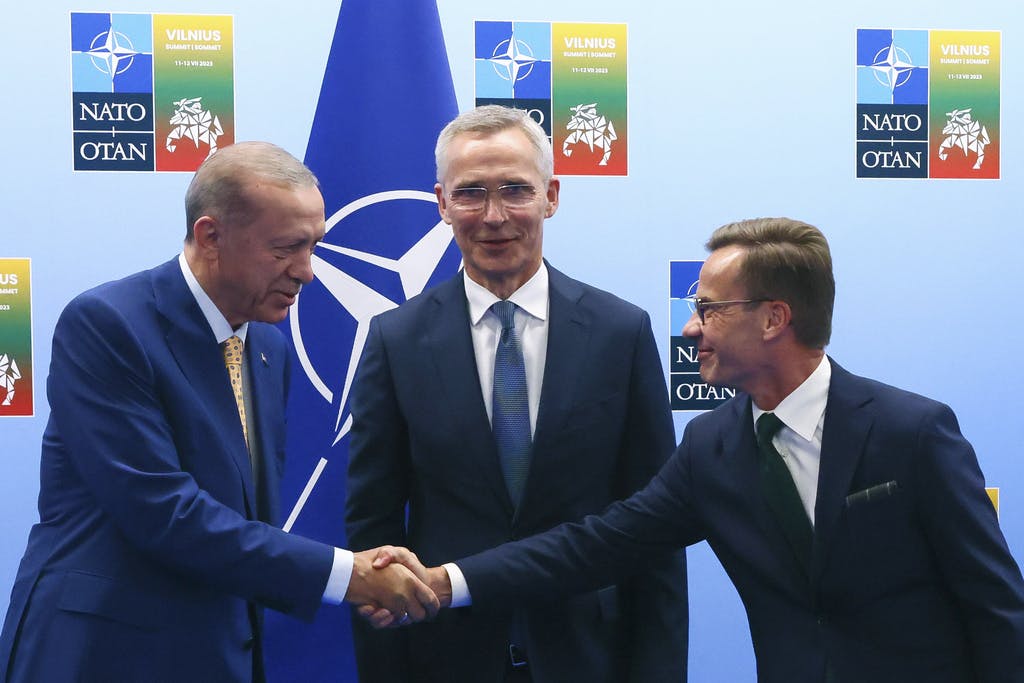
Kim Jong Un Glorifies North Korean Lives Lost in Ukraine War at Opening of Luxury Apartment Complexes at Pyongyang
By DONALD KIRK
|A safeguard for NATO is signed into law that suggests President Trump could call the bluff of Europeans who shout ‘Yankee, go home.’

Already have a subscription? Sign in to continue reading

By DONALD KIRK
|
By BRADLEY CORTRIGHT
|
$0.01/day for 60 days
Cancel anytime
By continuing you agree to our Privacy Policy and Terms of Service.
By GEORGE WILLIS
|